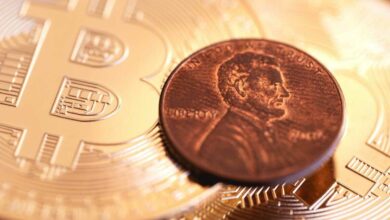Bitcoin – An Innovative Payment Network

Table of Content
The framework enables payments to be sent between users without going through a central authority, for example, a bank or payment gateway. It is created and held electronically. Bitcoins aren’t printed, similar to dollars or euros – they’re delivered by PCs all around the world, utilizing free software.
To completely understand the word bitcoin, we have to divide it into two segments.
- 1: On one hand, you have bitcoin-the-token, a piece of code that represents ownership of a digital concept.
- 2: On the other hand you have bitcoin-the-convention, a distributed network that keeps up a record of parities of bitcoin-the-token. Both are referred to as “bitcoin.”
Who made it?
A pseudonymous software developer passing by the name of Satoshi Nakamoto proposed bitcoin in 2008, as an electronic installment system dependent on mathematical proof. The thought was to produce a means of exchange, independent of ant central authority, that could be moved electronically in a protected, certain, and changeless way.
Nowadays, nobody knows who Satoshi Nakamoto truly is.
What is mining?
There are three essential methods of getting Bitcoins:
- Getting them on trade,
- Accepting them for goods and services
- And mining new ones
Mining is a procedure of adding transaction records to Bitcoin’s public ledger called the Blockchain. It exists with the goal that each exchange can be confirmed, and each and every user of the system can get to this record. It is additionally used to recognize genuine Bitcoin transactions from attempts of re-going through cash that has just been spent elsewhere.
How Bitcoin Mining Works?
Where do bitcoins come from? With paper cash, a Government chooses when to print and disperse cash. Bitcoin doesn’t have a local government.
With Bitcoin, miners utilize special software to solve math issues and are given a specific number of bitcoins in return. This gives a smart way to give the money and furthermore makes an incentive for additional individuals to mine.
Is Bitcoin Secure?
Bitcoin miners help keep the Bitcoin network secure by approving transactions. Mining is a significant and vital piece of Bitcoin that guarantees fairness while keeping the Bitcoin stable, protected, and secure.
In what ways it is different from other currencies?
Bitcoin can be utilized to pay for things electronically if both parties are willing. In that sense, it resembles ordinary dollars, euros, or yen, which are also exchanged digitally.
However, it varies from other currencies in a few significant manners:
1 – Decentralization:
Bitcoin’s most significant character is that it is decentralized. No single foundation controls the bitcoin network. It is kept up by a group of volunteer coders and run by an open system of dedicated PCs spread around the world. This pulls in people and groups that are uncomfortable with the control that banks or government foundations have over their cash.
2 – Limited supply:
Other currencies (dollars, euros, yen, and so on.) have an unlimited supply–central banks can issue the same number of as they need, and can manipulate a currency value comparative with others.
With bitcoin, the supply is firmly constrained by the underlying algorithm. Few new bitcoins stream out each hour. And will keep on doing as such at a reducing rate until a limit of 21 million has been reached. This makes bitcoin more attractive as an asset – in principle if demands grow and the supply remains the same, the value will increase.
3 – Pseudonymity:
While senders of traditional electronic payments are normally recognized (for confirmation purposes), users of bitcoin in principle work in semi-anonymity. Since there is no central “validator,” users don’t have to distinguish themselves when sending bitcoin to other users. At the point when a transaction request is submitted, the protocol checks every single past transaction to confirm that the sender has the vital bitcoin just as the power to send them. The system doesn’t have to know his or her identity.
4 – Immutability:
Bitcoin exchanges can’t be turned around, unlike electronic fiat exchanges. This is because there is no central authority that can say OK returns the cash.” If a transaction is recorded on the system, and if over an hour has passed, it is difficult to change.
Bitcoin and Climate Change:
Presently Everyone talks about Bitcoin and Climate Change. bitcoin has recorded 10 years of presence which could be considered a significant achievement for a technology. However, regardless of the major cryptocurrency, a lot of concerns have been raised with respect to the heavy hardware and power consumption necessities of Bitcoin mining and its subsequent effect on our environment.
Throughout the years, bitcoin has been exposed to a ton of reactions depending on the over-the-top measure of vitality required for its creation. According to Stephen (2017), bitcoin is quickly turning into a real-world environmental disaster. This statement depended on the expense of the bitcoin mining process which expended well over $150,000 worth of power in a day. The reactions have become stronger with the mining of more coins which have expanded from around 11 million in the year 2013 to more than 17 million as of 2018. Contrasted with other ordinary computerized money-related or monetary exercises, it has been seen that the power utilization of Bitcoin mining has been on the high side since 2015.
The Question of Bitcoin Future:
Nobody knows what will happen to bitcoin. It is for the most part unregulated. However, a few countries like Japan, China, and Australia have started guidelines. Governments are worried about tax assessment and their absence of authority over the money.




